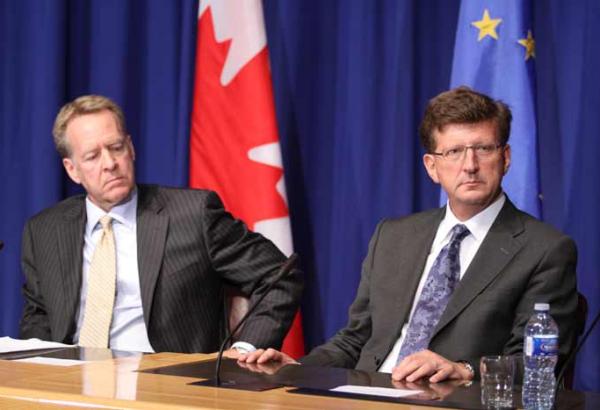The road to the implementation of the Canada-European Union Comprehensive Economic and Trade Agreement (CETA) has been quite a long one, but one senior European Union politician is hopeful to see it come into effect according to schedule, sometime in 2017.
The hopeful EU politician in question is Bernd Lange, chair of the European Parliament’s trade committee who made his comment while visiting Ottawa and Montreal during a series of meetings related to his committee’s final assessment of the Agreement.
Also among the European delegation, Latvian MEP Artis Pabriks, standing rapporteur for trade with Canada, mentioned: “It’s probably the most advanced trade agreement in the world.” He added proudly: “It’s part of the European Union in a global world.”
It is expected that CETA will bring economic benefits to both Canada and the European Union.
Canada’s Chief Negotiator Confident

Flashback to 2007 when European Union (EU) and Canadian officials met in Berlin and agreed to conduct a joint study examining the costs and benefits of pursuing a closer economic partnership. Over the course of the past nine years, there have been various missions, discussions, negotiations and announcements about CETA. Notable amongst the multiple milestones is when officials of both countries announced in August 2014 they had reached a complete text for the Agreement. It was release the following month.
After 17 months of negotiations, legal advisors on all sides have been examining each and every page – the legal review of the CETA text was completed and released in February 2016. Advisors suggested that the deal be ratified on both ends by the end of 2016 in order to come into effect in 2017.
Appearing in front of the Commons trade committee, Canada’s chief negotiator Steve Verheul reassured members that even if parts of CETA require ratification by individual members of the EU, that will only happen once the EU Parliament will have already approved it. Thus, with 95 per cent of the deal approved and put into effect following the EU Parliament’s ratification, only 5 per cent of the deal will be subject to individual member ratification.
Verheul comforted members by advising them he was confident the deal would be ratified in Europe.

 Payment
Payment  My Account
My Account